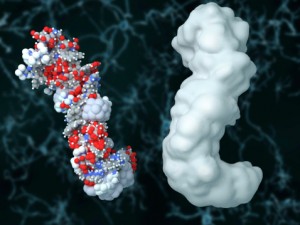Lose Weight > Common Sense To Lose Weight > Common Sense Article > Carbon Offsets: Off Or On Target?
Carbon Offsets: Off Or On Target?
For one thing, you can't always trust all the offset providers that are suddenly popping up all over the place. Some are likely to be scams. Others offer no real measurements of the carbon they prevent. Others are just taking your money for projects that would have happened anyway. There need to be some standards on both sides of the equation, i.e. how much carbon the consumer actually needs to offset for each activity they engage in and how much carbon each provided offset actually offsets. Apparently, Britain is going to create and apply some of these standards soon. We probably need something like that to happen in the U.S.
A lot of questions remain about carbon offsets but meanwhile the world seems to be rushing to embrace them. I worry that people will think they can use offsets to simply buy their way out of the problem rather than actually solve it. You know, we can purchase all the carbon offsets in the world, but if in doing so we think that gives us carte blanche to continue to spill our own individual carbon loads into the atmosphere, the atmosphere is still going to contain that carbon. Tree-planting offsets may absorb some of that carbon eventually (those trees will take time to mature to full carbon absorption capacity ).
Building renewable energy generation may help, but with overall energy demand continually rising, they may not offset the impacts of traditional energy supplies so much as they merely supplement those supplies with cleaner sources of power.
I guess I hope we come to see carbon offsets as a stop-gap solution and not as a permanent answer that licenses us to keep on keeping on albeit without any guilt or responsibility for our own behaviors. It really feels to me like they're a temporary strategy to reduce some of our impacts and help finance a bigger, more impactful renewable energy infrastructure, a voluntary carbon tax of sorts, rather than a solution. The only real answer to climate change that I see is to make changes in how we use energy so that we use less of it at all times, regardless of whether or not we're offsetting, and to develop and widely disseminate those technologies that permit us to make these changes without the kinds of sacrifices that turn people off by recalling a Paleolithic lifestyle.
Related Articles
-
How To Move Your Body
Living in New York City, exercise is almost naturally built into your
-
Cleansing Quickly In 5 Easy Steps And The Benefits
Cleansing: So why could it be so incredibly essential? Cleansing or
-
Fear and Loathing of Our Waistlines, The Vicious Cycle of Weight Bias
Several years ago at a nutrition confere
-
Can Lap Band Surgery Enable People to Live a More Active Lifestyle?
Many people every single day debate whether or not they should have la
-
Benefits Of Colon Cleansing: A Look At The Why
There are benefits of colon cleansing. But before we go into that, wha
-
Don’t Let Stress Make you Fat
Stress can become a cause of many illnesses and it can even make
- DON'T MISS
- Diet Solution Plan From Isabel de Los Rios
- Sorry J.Lo, I'm Kicking You Out!
- Skinny Fat – Being Thin Does Not Always Mean You’re Lean
- What You Should Know About Surgery For Weight Loss
- Free Weight Loss Plan For People On The Go
- Easy methods to Remove Love Handles Quickly
- Choose healthy foods for fast and effective weight loss
- What you can expect
- Cheat Your Way Thin - Great Advice on Fat Loss
- Planning a Balanced Weight Loss Diet Plan




